Achickwitbeatz presents the Instrumental Intel podcast, bringing you information instrumental to your artistic career including music industry news & tips, insights & interviews, and beats for your inspiration. Listen on Saturdays at 7 pm EST on Grander Radio and Achickwitbeatz.com.
Follow on Facebook, Instagram, Twitter, YouTube Audiomack & SoundCloud, and subscribe on your favorite podcast platform. Download the Grander Media app to listen to Grander Radio on the go.
- Art
- Independent Labels
- Internet Radio
- Music Documentaries
- Album Reviews
- Music History
- Music Industry News
- Free Game Friday
- Free Downloads
- Poetry
- Books
- Interviews
- Did You See It?!
- Hip Hop History
- Hear Here
- Music News
- Hip Hop Documentaries
- Music Marvels Radio Show
- Think Piece Thursday
- Mini Documentaries
- Instrumental Intel
- Music Humor
- Indie Analysis
- Conversations & Quotables
- Music
- Resources for Artists
- Podcasts
- Beats/Instrumentals
- Music Education
00:01
Hey, thank you so much for tuning in to Instrumental Intel. I am your host, music producer Achickwitbeatz, and I'm glad that you're here with me. Today's episode has music industry news and of course, beats by me for your inspiration, with a few insights sprinkled in here and there as well. So I'm excited to be bringing this episode to you. And before I go ahead and drop that very first beat, I got to give a shout out to my home station, Grander Radio out of Grand Rapids, Michigan. And with that, let's go.
00:31
[BEAT BREAK]
09:54
Alright, I'm back with the Music Biz Brief. First up, lyric service Musixmatch and its owner, TPG, are facing an antitrust lawsuit from Canadian rival LyricFind.
10:22
which alleges the companies conspired to push it out of the market and overcharge streaming platforms like Spotify. A US judge ruled the case can move forward, citing evidence of potential anti-competitive conduct tied to an exclusive deal with Warner Chappell Music. Musixmatch and TPG deny wrongdoing, while LyricFind calls the ruling a major step in its fight. The hearing is set for October 22nd, so we'll see what happens. Next.
10:48
Radiohead is testing a new ticketing system for their upcoming European tour aimed at blocking scalpers. Fans must pre-register and may receive an unlock code that allows them to buy up to four tickets for one show, but codes don't guarantee entry. The system also factors in location, giving fans a better chance at tickets for nearby cities, with an added push toward climate-friendly travel. If successful, it could set an example for other major acts. Also,
11:16
Reservoir Media has acquired 90 % of Miles Davis' publishing rights and a share of his recording income in a deal with the late jazz legend's estate. Sony Music still controls his classic recordings, but Reservoir will now help manage his catalog along with name and likeness opportunities. The deal follows Reservoir ramping up acquisitions ahead of Davis' centennial in 2026 with plans for films, concerts, and global tributes to celebrate his legacy. Next,
11:44
indie licensing agency Merlin has unveiled the first wave of labels and artists joining its partnership with fan-focused platform Nina, including Anjunabeats, don't know if I'm saying that right, Armada Music, Ninja Tune, Secretly Group, and artists like Cold Cut and more. Each will get a dedicated hub on Nina with releases, exclusives, and catalog features. Unlike many platforms, Nina lets artists keep 100 % of their sales revenue, positioning itself as a Bandcamp alternative,
12:13
while planning future paid tools. Also, Amazon Music has launched “Weekly Vibe”, a new AI-powered feature that creates personalized playlists every Monday based on each listener's recent habits and moods. Available across all US subscription tiers, the playlist makes familiar favorites with new recommendations and can be shared or saved for later. The feature builds on Amazon's earlier AI tools like Maestro and Explore as the platform steps up competition with Spotify's AI-driven offerings.
12:42
and SoundExchange has filed an appeal after a U.S. judge ruled it lacks the authority to sue licensees that underpay royalties. The case stems from its $400 million dispute with Sirius XM, which SoundExchange accuses of faulty calculations under the compulsory license system it administers. The society argues the ruling misinterprets copyright law and, if upheld, could prevent it from enforcing payments on behalf of artists and labels in the future. The appeal is now headed to the Second Circuit Court.
13:12
and Spotify has introduced “smart filters”, a new feature that lets premium users sort their library by activity, mood, or genre. Rolling out first in select markets, including the US, UK, and Canada, the filters work across playlists, podcasts, audiobooks, and can even trigger the AI DJ. It's part of Spotify's broader push into personalization, though some users say the app is becoming too cluttered with too many features. Spotify has also finally rolled out lossless audio,
13:41
four years after first announcing it. Premium subscribers in more than 50 countries, including the US, UK, Germany, Japan, and Australia, are gradually gaining access through October. The feature delivers up to 24-bit/44.1 kHz FLAC, streaming across mobile, desktop, and connected devices, with Sonos and Amazon speakers coming next month.
14:04
While many expected lossless to be locked in behind Spotify's rumored super premium tier, it's currently included at no extra cost for premium users. This puts Spotify in line with Apple Music and Amazon Music, which both offer Lossless without additional charges. The big question now is what perks will Spotify reserve for its upcoming superfans tier? Next, StubHub has revived its plans to go public, filing to list on the New York Stock Exchange under the ticker STUB with a target valuation of around $9 billion.
14:33
The secondary ticketing platform plans to offer 34 million shares priced between $22 and $25 each, but no listing date has been confirmed. StubHub's revenue rose from $1.37 billion to $1.77 billion year over year, and this comes as investor appetite for IPOs rebounds following other high-profile listings. Alright, and North America's arrival artists and UK-based ATC Live have merged to form ROAM.
15:01
a new independent booking agency representing more than 800 artists with offices across six cities worldwide. The combined company is now the fifth-largest independent booking agency, with its roster collectively playing over 10,000 shows annually and racking up major awards. ROAM says the merger strengthens opportunities for artists at every stage of their touring careers. Next in news, Lisa Yang, longtime Goldman Sachs analyst behind the influential Music in the Air report.
15:29
leaving the firm after 16 years. Rumor has it she's joining Warner Music Group, though the company hasn't confirmed it yet. Her research has shaped how the business views streaming growth, with her latest forecast projecting 827 million paid subscribers by 2025 and 1.5 billion by 2035. Next, the RIAA reports that U.S. recorded music revenue in the first half of 2025
15:53
grew just 0.9% year over year to $5.59 billion, reflecting slower industry momentum. Paid subscriptions remain the bright spot, reaching 105.3 million accounts and driving $2.89 billion in revenue, an increase of 6.3%. However, ad-supported streaming, limited tier subscriptions, and sound exchange payouts all fell, while physical sales declined nearly 6%, with vinyl slipping 1% and CDs down 22%.
16:23
Despite the flat growth, the RIAA highlighted America's global dominance, with US artists accounting for one in three streams worldwide. Also, Deezer reports that nearly a third of all tracks uploaded to its platform each day are now fully AI-generated, which is approximately 30,000 out of 107,000 daily uploads. The company estimates up to 70% of plays for these AI tracks are fraudulent and has been filtering them out of royalty payments.
16:50
While AI music accounts for just 0.5% of total streams, Deezer has removed such content from recommendations and playlists, and it now tags 100% AI-generated tracks for transparency. The influx highlights growing industry concerns over generative AI, with some studies warning it could put a quarter of creator revenues at risk by 2028. And Swedish collecting society STIM, S-T-I-M, has introduced what it calls the world's first collective AI music license.
17:19
The pilot, launched with startups Songfox and Sureel, covers works from creators who've opted in and ensures royalties whenever their music is used in AI training. The license also includes attribution, allowing compensation to flow back to original rights holders when AI-generated songs show their influence. While still limited in scope, STIM's move follows similar efforts by Sacem and GEMA and is a step toward structured licensing for AI, but the bigger challenge will be getting AI companies to sign on.
17:49
Also FYI, LabelWorx has launched Pick N’ Mix Promo, a new in-house marketing service that lets independent electronic artists and labels build tailored campaigns once only accessible to majors. Available exclusively to LabelWorx clients, the service offers mix-and-match options like playlist pitching, digital ads, radio plugging, press, social media strategy, DJ promotion, and more, starting from £500 per release.
18:16
Campaigns are managed by the LabelWorx team with support from promo partners. Pick N’ Mix Promo is positioned as a new resource for indies looking to scale their releases with major label-level marketing support. Next, The Orchard has launched Open, a new physical distribution network formed by merging Germany's SPV distribution and Membran. Co-owned with hard rock label Napalm Records, Open expands The Orchard's reach across the UK, Europe, and Asia through online retail, mail order, and brick and mortar outlets.
18:46
The venture aims to give independent labels and artists stronger supply chain support and access to wider markets under the Orchard's global infrastructure. And Belong, the music-focused challenger bank, founded by former Spotify exec Nick Holmston, has raised $1.5 million in its first funding round with multiple investors. The startup plans to reward superfans who stream music and videos through its app with points redeemable for perks like exclusive sessions, tickets, and merch.
19:15
Belong has also opened an additional $1 million funding round set to close at the end of the month. Next, TikTok's music distribution platform SoundOn has now surpassed 1.1 million registered artists and is expanding into Germany, the world's fourth-largest music market. German artists will be able to distribute their music to major streaming services while also uploading directly to TikTok. Since its 2022 launch, hundreds of thousands of acts have released music through SoundOn and earned revenue.
19:44
with success stories like WizTheMC and more, showing its global reach. And finally, Coda Music, a new streaming service blending on-demand music with social features, has launched in the US and Canada. Subscriptions start at $10.99, and fans can direct $1 of their payment to an artist of their choice. The platform works with all three major labels, Merlin and Beggars Group, and promotes a “people over algorithms” approach.
20:10
Highlighting artists like Xiu Xiu, hope I'm pronouncing that correctly, who left Spotify in protest. Expansion to Europe and Asia is planned for next year. Alright, that's a wrap for this week's Music Biz Brief. Now back to the beats for your inspiration.
[BEAT BREAK]
24:24
Okay, as promised, I am Achickwitbeatz and we're going to talk about Six Ways to Strengthen Your Online Presence. And something that's really important that some artists kind of overlook or maybe they know that it's important, but aren't really sure how to do it on top of actually being a creative and juggling, you know, all these other things that you might have going on. But uh these are some, some tips that should help you be able to manage that. You should see some improvement if you actually apply these.
24:53
And yeah, so kind of some free game for the day. So first off, make sure that you join popular social media platforms, because mainly you have to be where your people are. So presence on the platforms make it easier for you to find. So, you know, regardless of how much you like some of these major ones, just at least be there. So that way, when people are searching for you, they can find you uh even.
25:18
If it's outside of that particular platform, when they Google you, they'll be able to find you there and that sort of thing. So that kind of helps improve your uh search engine optimization rankings to where when people search for you, they can find you a lot easier. The next is to keep your screen name consistent.
25:37
So I know sometimes this can be challenging to do because, maybe you run into somebody already has something like that, but try to keep it as consistent as you possibly can. Even if it's something simple, like adding an underscore to your username or whatever the case may be, but it makes it really, really hard for fans to find you. If you go by one name on Facebook, another name on Twitter and something totally different on Instagram. So, you know, just keep that in mind. So, you know, having the same screen name.
26:07
across platforms and make you easily searchable. Alright, number three, it's also recommended that you post often. So I know this is a challenge for a lot of people, but you you can take one day out of the week, month, however you want to do your planning and just make sure that you kind of have stuff set up and ready to go. You can always save drafts. So it's not something that you'll have to uh necessarily think about every day.
26:35
But you can just hit the button and go. So definitely make sure that you post often. It's typically recommended that you post three times a day, but even once a day can improve your visibility. So definitely something to try to add into your schedule whenever possible. All right, number four, share valuable insights. So if you share things, experiences, perspectives, and things that will be relevant to people with your common interests,
27:05
that kind of draws them to you. So it's not that you have to be somebody else, which is what you kind of see happen sometime or that's what people say happens on social media, but you can be yourself and find your people that way. So the more you share your experiences and your perspectives, uh also make sure that you're using relevant hashtags whenever available, but that can draw people who are kind of like-minded or similar to you and they probably like your music.
27:33
um, to follow you. And so that'll also make it easier for you to find, or for them to find you. All right. Number five, blog. So blogging about topics related to what you represent is a great way to connect with like minds as well. So, you know, there's so many sites, people have their favorites. Um, so yeah, whichever one you choose, you know, all you have to do is just share some stuff that you know, share some experiences, some knowledge that you're willing to share.
28:02
And, um, when people are searching for those topics, they'll be able to find you that way as well, which will strengthen your presence online. All right. And finally, number six, put your music on various platforms. So, okay. This is actually beyond just, um, distribution, but you know, some of the other ones that, um, artists can connect with other artists or fans like SoundCloud, Audiomack, and things of that nature.
28:31
The more places that you put your music, the more you broaden the potential of your reach. Because there are some people who maybe only prefer to listen to artists on Bandcamp or, you know, Audiomack or some of these other ones that I just previously mentioned, or, you know, there's so many out there these days. But the more places that you have your music, the better your chances are for people to find you. And yeah, there you have it. Six ways to strengthen your online presence.
29:00
[BEAT BREAK]
32:28
Hot topic is Why Your Music Needs Metadata. So this is something that's really important that a lot of people don't really
32:36
Um, take the time to make sure it's completed and, um, it can have a lot of repercussions. So, you know, before we jump in, you know, completely just want to make sure that you have an understanding. So, you know, of course the data is information already, but the metadata is kind of like on the smaller levels. So if you've ever had, um, in, hope that I'm not dating myself too much with this here, but if you've ever gotten the CD from somebody, maybe a lot.
33:06
live show or, you know, maybe your homeboy just went to the studio and lay something down and wanted you to hear it. And you get the CD, you pop it in and it just says track one or, uh you know, something really generic. If you actually complete the metadata, that's what makes everything actually show up so you can see what the track title is, who the artist is, and all that good information. So, you know, it's super important.
33:33
to make sure that that's their one. Aesthetically, it's way more pleasing to see that instead of track 001.5 final final cut. So, oh yeah, aesthetically, it would look a lot better to have it, but it goes a little bit deeper than that. So, you know, the first thing is.
33:53
accurate music metadata, make sure that the creators are appropriately credited. So, you know, if you've got this song, you got to make sure that all of your information is in there and your collaborators as well. So, you know, if you've got a featured artist, it would really suck for them to not be able to have their name on it because they put the work in for it. So that's one major thing. oh Another.
34:17
is that missing or inaccurate music metadata leads to unpaid royalties when the song is played, licensed, or purchased. So, you know, if you don't have this in there, then when it comes time to make sure that you're getting the royalties for the track, you're not going to get it because if your name doesn't match up with what they have or what you've actually registered, then they don't know who to pay the money to. And so what happens is that money kind of sits in a little pool that they have.
34:45
for an extended period of time. And then if it's not claimed, it goes in to pay their fees and other things that they have. So you want to make sure that you get the money that you're owed. You want to make sure that your collaborators are getting the money that they're owed. So, you know, if you're missing anything in those fields, then, you know, it's a huge problem and not everybody's going to get what they deserve. know, music streaming platforms, they utilize metadata to make your music discoverable to potential fans.
35:15
So if you don't have the genre filled out, then they don't know where to put you. So if there's nothing there, you can't possibly get playlisted for, you know, anybody that's like, hey, play me early 2000s hip hop, play me 2020s hip hop. If your information isn't there and they don't know how to categorize that track, you're going to be missing out. So, you know, there's three main things right there. Actually four, if you want to count the aesthetic thing, which I definitely do.
35:44
So, you you got to make sure that it's actually there. So whoever is entering the information for your digital distribution, don't leave anything blank. So if that's you, make sure that you've got everything there. If you've hired someone else to do it, make sure that they know that everything needs to be completed. um Also, if it's something that you're doing, like maybe you're handing out CDs that you got pressed out or whatever the case may be.
36:11
You can add it directly to your songs using your computer's music software or uh other software like Digital Audio Workspace, Kid 3, Audacity. So there's ways to do it depending on how you distribute it. But just don't leave it blank. It's incredibly important. Like I say, make sure that your collaborators get the credit that they deserve. Make sure that your uh
36:36
maximizing everything that you can be getting. So yeah, you don't want to miss out on those playlists and things like that. Make sure that you get included in the algorithms that you want to be in. So yeah, just make sure that your music has.
36:49
metadata.
[BEAT BREAK]
43:45
Hey, this is music producer Achickwitbeatz, and you're listening to my podcast Instrumental Intel.
[BEAT BREAK]
46:21
Strategic Planning for Artists – it's just some different things for you to ponder. So, you know, right around this time every year, most businesses kind of, you know, take a look at what they've done throughout the year and what they hope to accomplish. And if you're an independent artist, you definitely need to consider yourself as a business because you have something to offer and hopefully people want to, you know, pay for it. So if you're putting all this effort and time and energy into it, my
46:47
get the most that you can out of it. So definitely make sure that you're considering yourself as a business. So one of the first things that you need to check at any time you're talking about strategic planning, this is what businesses do as well, but it's mission and objectives. So, you know, if you don't have a mission, develop one. It doesn't have to be long, but make sure that it covers the basics. So, you know, the basics are the who, who's included in your business, the what.
47:15
What is it that you do and what clientele do you serve? Who are the people that listen to your music? The why and how. Why is it that you do what you do and how do you stand out from everyone else? What makes you different? What's your edge? And so yeah, if you don't have a mission, use those points to kind of ponder and plan it out. And if you do have a mission, take the time to reevaluate it and make sure that still lines up with what you're trying to accomplish.
47:42
The next thing that a lot of businesses kind of look at is what they call situational analysis in environmental scanning. All right, now if we break that down, basically you're taking a look at what's happening around you. Pay attention to what other artists and music professionals are doing. Social networking has made this so much easier to accomplish. So as an artist, the one major thing that you need to keep in mind during this process is that everyone isn't your competition.
48:10
Just because there's other rappers, producers, singers, whatever it is that you do, doesn't mean that everybody doing that is your competition. There's so many specific niches that people or niche depend on.
48:23
if you want to use the French pronunciation or whatever, but it's still possible to learn from other people in the industry. So pay attention to what you see works for those individuals as well as what doesn't work for those individuals. All so if there's something that you're seeing, you're like, man, this was awesome. Or if there's something that you're seeing that like, oh, that was really, really off-putting, take note of that. oh
48:45
And so, you know, it's important to look at it from the standpoint of a fan. So not necessarily as an artist, but if you're a fan of that person or you appreciate what it is that they do, if you look at it from that standpoint, you'll be able to see what's working and oh utilize what grabs your attention and what didn't and know how to apply it to your situation. So the next point is strategy formulation. You know, consider all the information that you've gathered, everything that we've mentioned before already.
49:15
mission objectives, situational analysis, environmental scanning stage, all that stuff, and determine what'll work best for the goals that you're trying to accomplish. Make sure you write them down. Writing it down could be the difference. I know it sounds bananas and insane, but if it's just in your mind, it's not really solidified. So just make sure that you get it down on paper, in your notes on your phone, your laptop, computer, whatever you have.
49:44
Make sure that you write it down to kind of help you pinpoint exactly what it is that you're trying to do. The next step is to research the financial resources that you need to bring everything into fruition. So, you know, if that graphic designer you want to work with charges 150 for that logo or t-shirt design, plan for that. Write that down and determine what you need to do to make it happen. And the next step is strategy implementation. So,
50:13
Here's where you develop concrete steps to make sure that you reach the strategy that you formulated. So, you know, for instance, if this is the year you want to launch a website, who are you going to contact? When will you contact them to actually set things in motion? If you're going to start selling merch, you know, who will you contact for design and when? Who are you going to be selling through? So at this point, once again, write it down, but yeah, actually the individual steps that you need to take to make sure that it happens.
50:43
And right after that, evaluation and control. So this is kind of the final point there for strategic planning. So this aspect is really important to measure how things are going. So, you know, while you're doing this, it's good to set measurable goals. So that way your progress is actually visible to you. It helps you, you know, keep you going through tough times and helps you celebrate during the good. So if you decided to increase your followers or fans by 20%.
51:11
You can see if your strategy is helping you by doing the math. Make sure that you're checking out the metrics that are available on these social media platforms or uh the music platforms. They often let you know how many more listeners you have via Spotify, Apple Music, Amazon, whatever it is. So yeah, make sure that you're using your metrics to see how close you are to achieving your goals. It's one of the things that will definitely help you.
51:39
So, you know, just because something doesn't necessarily go the way that you planned it to or expected it to, doesn't mean that it can't work. Sometimes you just kind of need to adjust how you get there. So, you know, once again, just kind of recap for strategic planning. Number one, make sure you check your mission and objectives. Number two, situational analysis and environmental scanning. Number three, strategy formulation. Number four,
52:08
strategy implementation. And finally, number five, evaluation and control. So yeah, I mean, if you need specific help getting your strategy in place, you can always reach out. I am available for consulting, but you know, most of the stuff is available if you're willing to kind of dig down, do the research on your own via the internet. But like said, if you need personalized help, you can always contact me via my website.
52:35
at Achickwitbeatz.com.
[BEAT BREAK]
59:30
Alright, and that's a wrap for this episode of instrumental Intel. I've been your host, music producer Achickwitbeatz. And once again, I want to thank you for tuning in. I want to thank my home station, Grander Radio out of Grand Rapids, Michigan. If you've enjoyed any of the music that you've heard, please do find and follow me on your favorite music platform. I got more goodness coming your way. And same thing with the podcast, more goodness lined up for next week as well. So till next time, you know where to find me. Tune in, tell a friend, and I'll see you then. Peace.
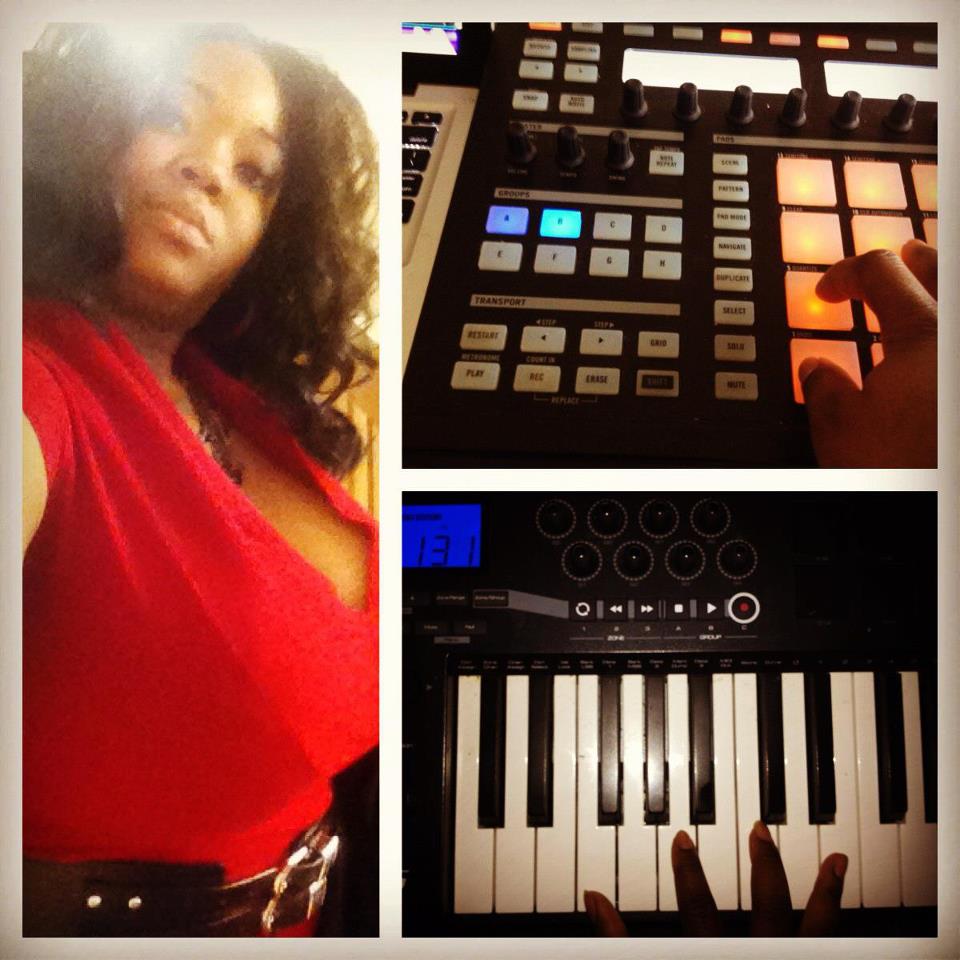







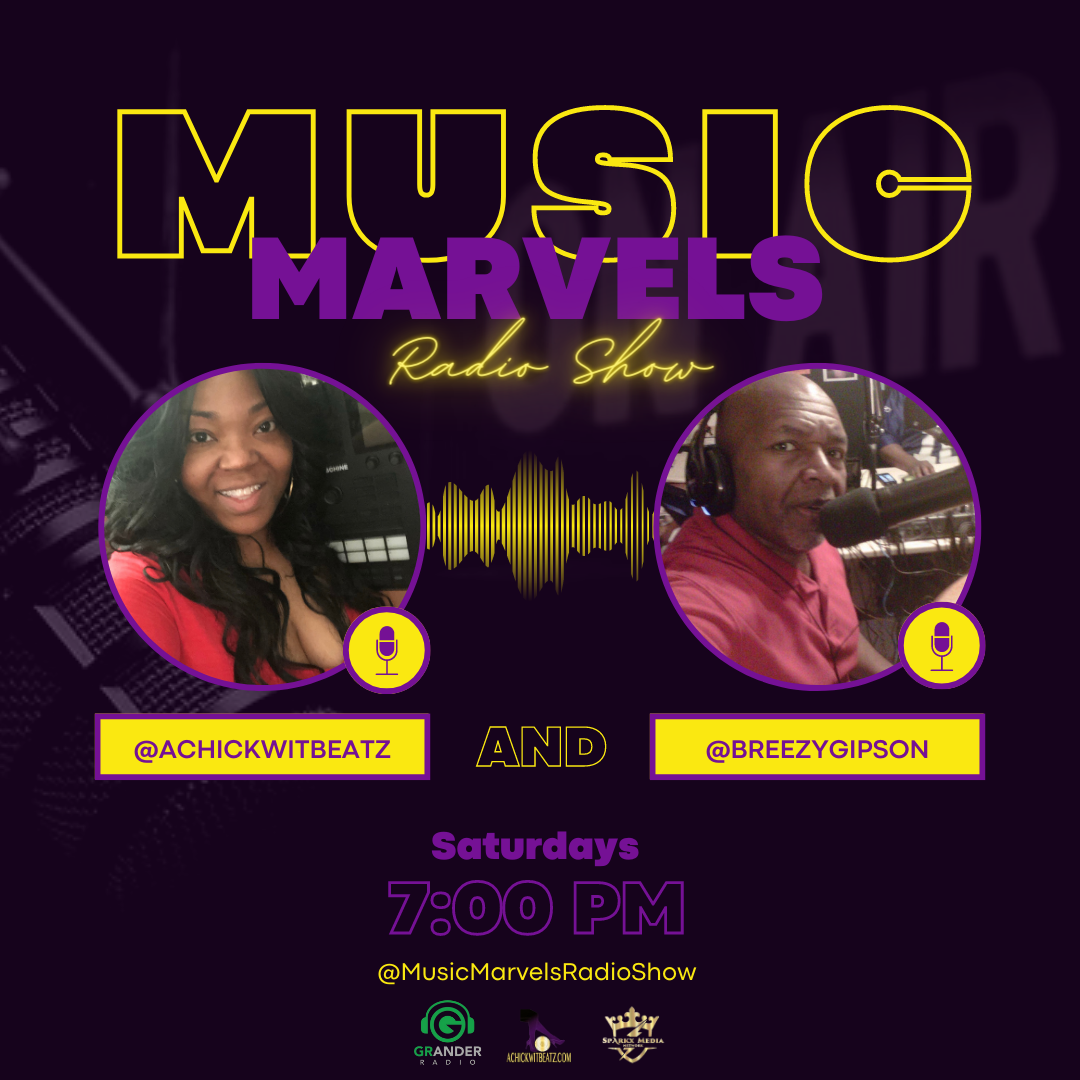
![Hear Here: Achickwitbeatz - Dopamine & Serotonin [Single]](https://images.squarespace-cdn.com/content/v1/52b0b90ae4b0293bfed0d692/1710852808557-EZYGFDIBHLBSIRFOVS1Q/Dopamine+%26+Serotonin.JPG)


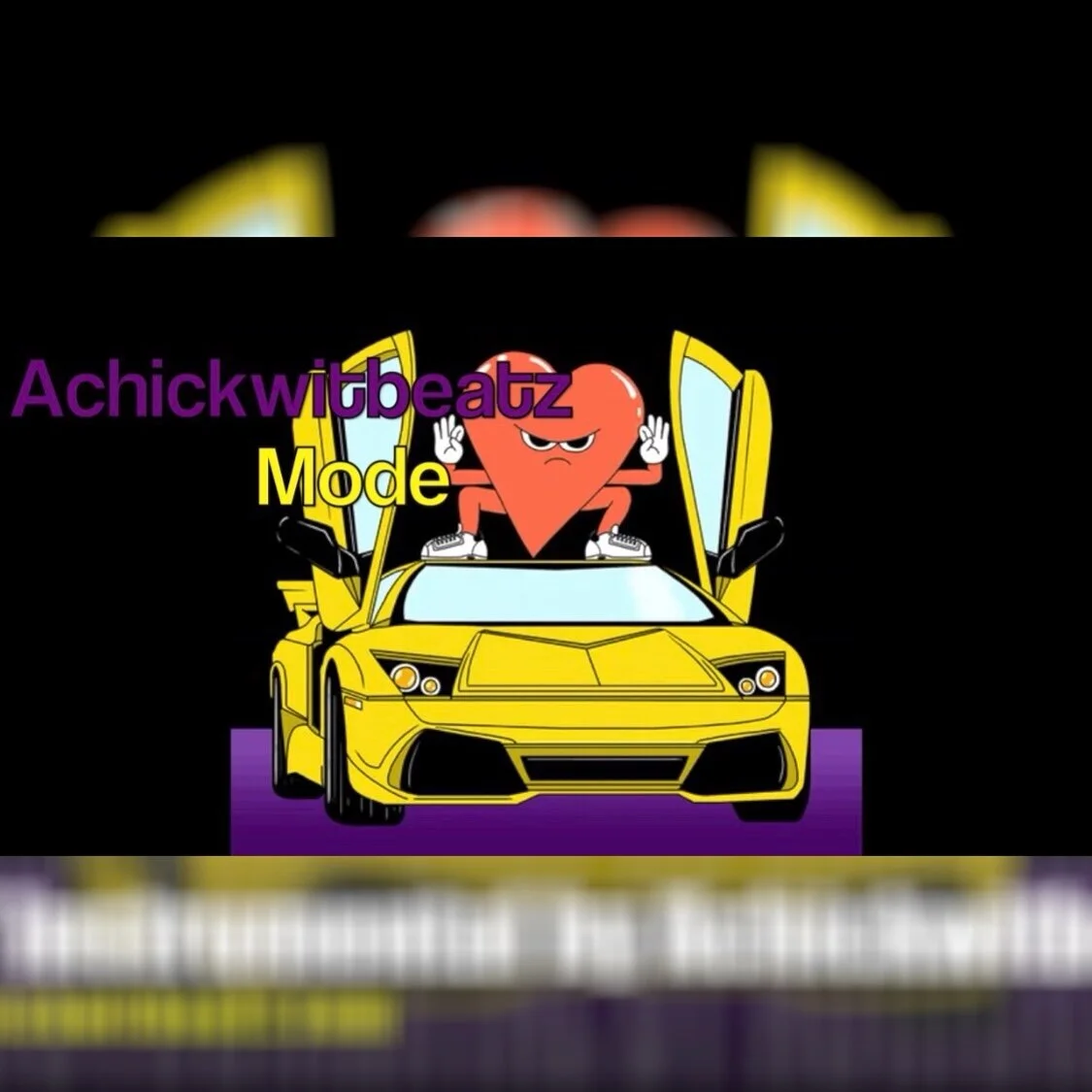
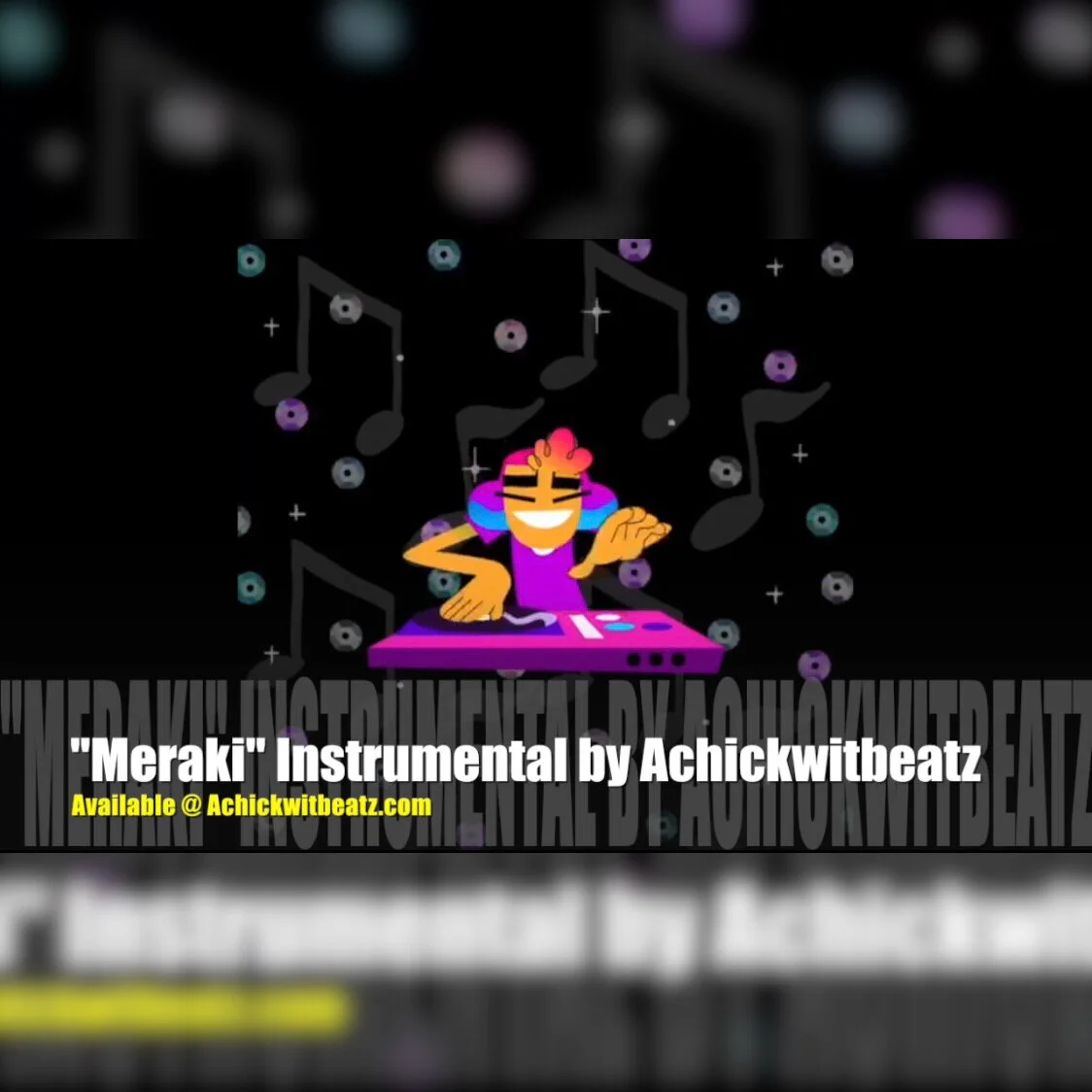





![Hear Here: Dagga Man- "Analytics" [Prod. by Achickwitbeatz]](https://images.squarespace-cdn.com/content/v1/52b0b90ae4b0293bfed0d692/1584638158548-9R55AZLWZIDFJC8LATV6/IMG_2212.JPG)







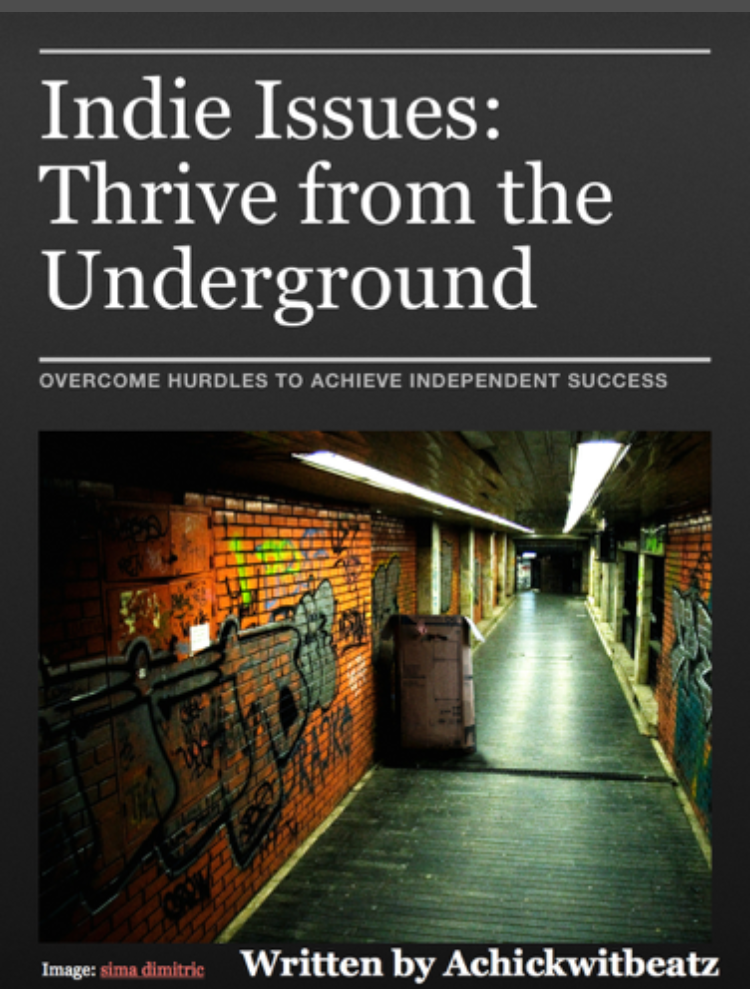
















![Making Music on a Budget [Infographic]](https://images.squarespace-cdn.com/content/v1/52b0b90ae4b0293bfed0d692/1582844361438-3JTE5NT3EL51FHXC0WJI/making-music-on_1929722%25281%2529.jpg)



